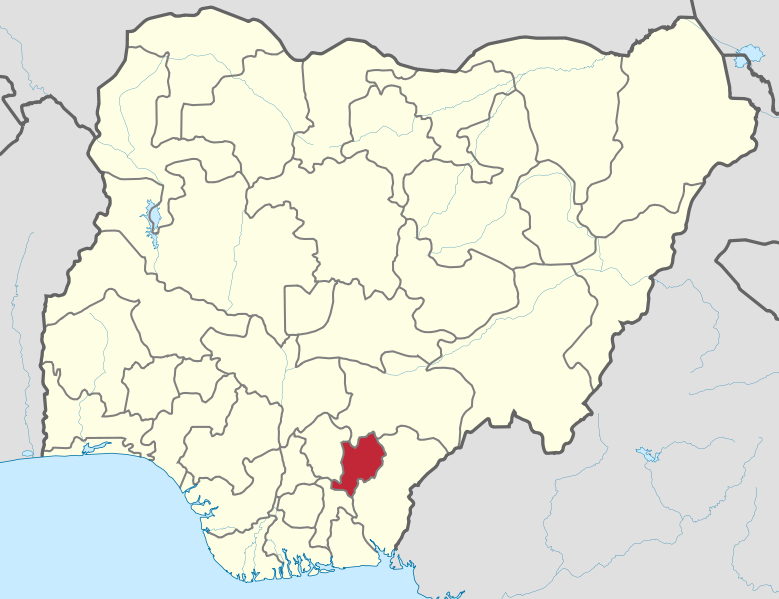Ebonyi State
States Jan 03, 2025

Table of Contents
Introduction to Ebonyi State, Nigeria
Located in the southeastern region of Nigeria, Ebonyi State stands as a testament to the rich cultural heritage and historical significance of the Igbo people. Established in 1996, Ebonyi is one of Nigeria’s youngest states, carved out from parts of Enugu and Abia States. Despite its relatively recent formation, the state boasts a deep historical and cultural legacy that dates back centuries.
Geography and Demographics
Ebonyi State is bordered by Benue State to the north, Cross River State to the east, Enugu State to the west, and Abia State to the south. The state covers an area of approximately 5,935 square kilometers and is home to a population of over 2.8 million people, according to the 2006 census.
The state is predominantly inhabited by the Igbo ethnic group, who are known for their industriousness, vibrant traditions, and communal way of life. Ebonyi comprises 13 local government areas, with Abakaliki serving as both the capital and the largest city in the state.
Historical Background
The history of Ebonyi State is deeply intertwined with the broader history of the Igbo people, one of the major ethnic groups in Nigeria. Long before the state was officially created, the region was a hub of agricultural activity and trade. The fertile lands of Ebonyi have supported farming communities for generations, with crops such as yam, cassava, rice, and maize playing a central role in the local economy.
Ebonyi also has a rich pre-colonial history, marked by traditional governance systems and cultural practices. The people of the region were organized into autonomous communities, each led by elders, chiefs, and other respected figures. These communities were centers of trade, craftsmanship, and cultural exchange.
Creation of Ebonyi State
Ebonyi State was created on October 1, 1996, by the military government of General Sani Abacha. The state was formed to address the developmental disparities in the region and to provide a platform for the people of the area to have greater political representation. Since its creation, Ebonyi has made significant strides in infrastructure, education, and healthcare, though challenges remain in ensuring equitable development across all parts of the state.
Cultural Heritage and Festivals
Ebonyi State is rich in cultural traditions that reflect the values and history of its people. The state is known for its vibrant festivals, colorful dances, and intricate masquerades. Some of the notable festivals in Ebonyi include the New Yam Festival (Iri Ji), which celebrates the harvest season and is marked by feasting, dancing, and communal unity.
Ebonyi is also renowned for its traditional crafts, including pottery, weaving, and blacksmithing. These crafts are not only a source of income but also a way of preserving the cultural heritage of the state.
Tourist Attractions in Ebonyi State
Ebonyi boasts several natural and historical attractions that draw visitors from within and outside Nigeria. Some of the notable tourist destinations include:
- Abakaliki Rice Mill: A symbol of the state’s agricultural prowess, the rice mill is a major economic hub and a testament to the industrious spirit of Ebonyi people.
- Ngbo Caves: These ancient caves in Ohaukwu Local Government Area are a fascinating historical site that offers insights into the early inhabitants of the region.
- Salt Lakes: Ebonyi is famously known as the “Salt of the Nation” due to its natural salt deposits. The salt lakes in places like Okposi and Uburu are both historically and economically significant.
- Cross River Basin: The basin offers stunning landscapes and opportunities for eco-tourism, including hiking and bird-watching.
Economic Activities
The economy of Ebonyi State is primarily agrarian, with farming serving as the primary occupation of the majority of its residents. This is complemented by mining activities, particularly the extraction of lead, zinc, and salt. The state government has also made efforts to diversify the economy by investing in small and medium enterprises (SMEs) and infrastructure development.
Abakaliki, the state capital, serves as an economic hub, with bustling markets, small-scale industries, and a growing urban infrastructure. The state’s emphasis on rice production has earned it a reputation as one of Nigeria’s leading rice-producing states.
Education and Development
Since its creation, Ebonyi State has prioritized education as a tool for development. The state is home to several institutions of higher learning, including Ebonyi State University (EBSU) and Alex Ekwueme Federal University, Ndufu-Alike Ikwo (FUNAI). These institutions play a vital role in shaping the next generation of leaders and professionals in the state and beyond.
In addition to education, the state government has invested in healthcare, road infrastructure, and rural development to improve the quality of life for its citizens. However, challenges such as poverty, unemployment, and inadequate healthcare facilities persist, requiring sustained efforts and investments.
Conclusion
Ebonyi State is a land of history, culture, and untapped potential. From its rich cultural heritage to its natural resources and agricultural prowess, the state offers a unique blend of tradition and modernity. As Ebonyi continues to grow and develop, it remains an integral part of Nigeria’s socio-economic and cultural landscape.
Whether you’re interested in exploring its historical sites, experiencing its vibrant festivals, or learning about its economic contributions, Ebonyi State is undoubtedly a fascinating destination with much to offer.
